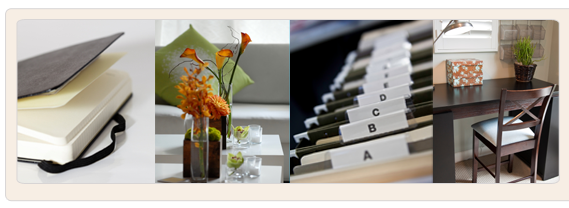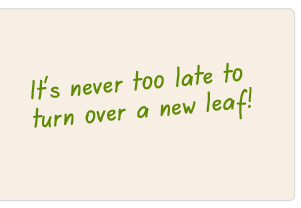RESOLVE…To Get Organized!
HAPPY NEW YEAR!
I look forward to sharing lots of helpful tips and exciting plans with you in the year ahead.
Did you know? In a recent survey for CNN by the Journal of Clinical Psychology, GETTING ORGANIZED was Number 2 on their 5 Most Popular New Year’s Resolutions. Surprised? Probably not.
To help you jump-start your productivity in 2013, CLICK HERE to claim your copy of Brian Tracy’s Eat That Frog. Happy eating!
RESOLVING TO GET ORGANIZED
“The biggest reason most people fail is that they try to fix too much at once – join a gym, get out of debt, floss after meals and have thinner thighs in 30 days.” Marilu Henner
Have you already given up on your New Year’s resolutions?
Whether you need to organize your home, your office–or both–here are some ideas to help you succeed. Let’s get started and turn over another leaf!
Planning
“Most of us start out with a positive attitude and a plan to do our best.” Marilu Henner
Set aside some time to think about what you want to organize. Make yourself a cup of your favourite hot drink. Grab a pen and some paper. Did you know that if you write down your goals, you are more likely to achieve them?
It’s the start of a new year. Dream BIG—even if you think it’s unattainable. It’s amazing what you can accomplish when you break a big dream down into small projects.
Create a Master List
Go through your house thinking about one room at a time. Take photos of each room; decorators say you’re able to view it more objectively. Determine what functions each room has to fulfill. If the room has to perform multiple functions, create a different zone for each activity.
Your master list should contain all of the projects that you want to complete. Estimate how long you think each project will take. Be realistic.
The next step is to prioritize your list, and determine which room you will work on first. It’s best to start with the room that causes you the most stress.
Scheduling
When you schedule organizing sessions in your planner or calendar, you’re making a commitment to do the required work.
You may not be able to complete a room all at once. If necessary, divide it into sections, and work on one section at a time. If you only have one hour, pick a project from your list that you can complete in that time period.
Keep in mind that you don’t have to do all the work yourself. If you want to organize a number of areas, schedule a family meeting. Involving the whole family in the process can teach them valuable life-long skills. Just remember that children can’t stay focused as long as an adult. Try to make it fun!
It’s also a good idea to schedule a snack break; prepare snacks ahead of time. Plan ahead–when cooking, double a recipe and freeze one batch. At the end of the day when you’re tired, you’ll have an easy meal!
Supplies
Stock up–garbage bags, recycle bin, empty boxes, cleaning supplies, rubber gloves, etc. Label boxes—Keep, Sell and Donate.
Use storage containers that you already own—the ones you emptied when you decluttered. For some items, you may need to purge before you can determine what type of containers you need.
Getting Started
“. . . don’t let perfectionism become an excuse for never getting started.” Marilu Henner
Harold Taylor, a leading Canadian time management expert, tells us studies have found that you’ll accomplish more if you focus on one task at a time.
Gather together everything you want to store in an area before you start organizing that space. Start by grouping similar items together, so it’s easier to make a decision about what to keep. Place items that belong elsewhere in a box just outside the room. It’s easy to become distracted if you leave the room.
Resist the urge to tell yourself, “I may need it someday.” Remember to REDUCE, REUSE and RECYCLE.
Take a break–set a timer–to keep up your energy level. This is especially important when working with children.
Storage
Similar items should be stored together and as close as possible to where they are used. An item is more likely to be put back if its home is close at hand.
Clear storage containers should be used as much as possible, so you can see what is inside. Be sure to label all containers.
Maintenance
Maintaining your organized space will require some effort from everyone. Make tidying up part of your children’s chores. Schedule a daily or weekly clean-up time, so things don’t get out of control. If you find something isn’t working, don’t give up. Schedule a family meeting; a small change may be all that’s required.
Rewards
When you’re done, don’t forget to reward your children and yourself for all your hard work!




Connect with us Online